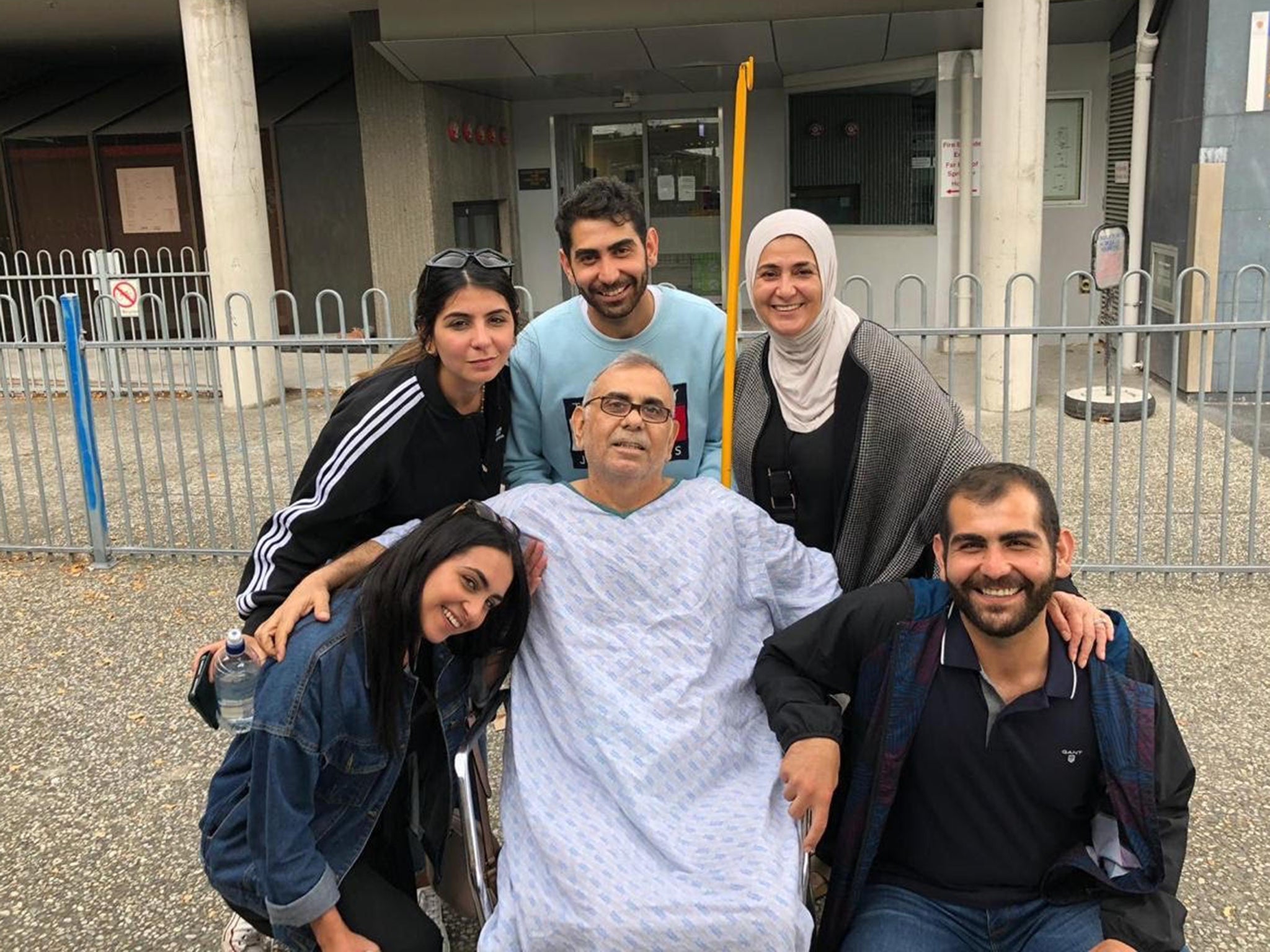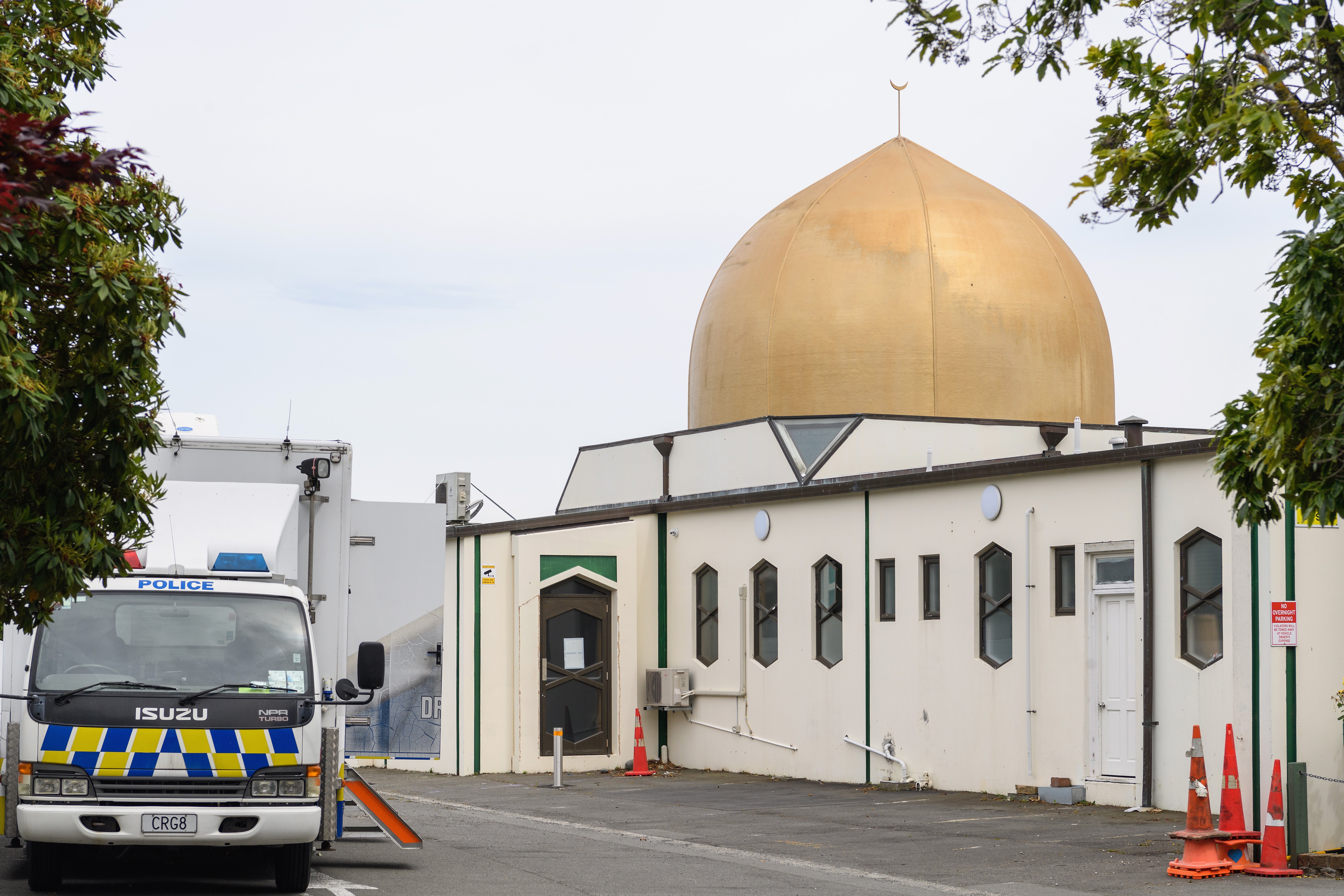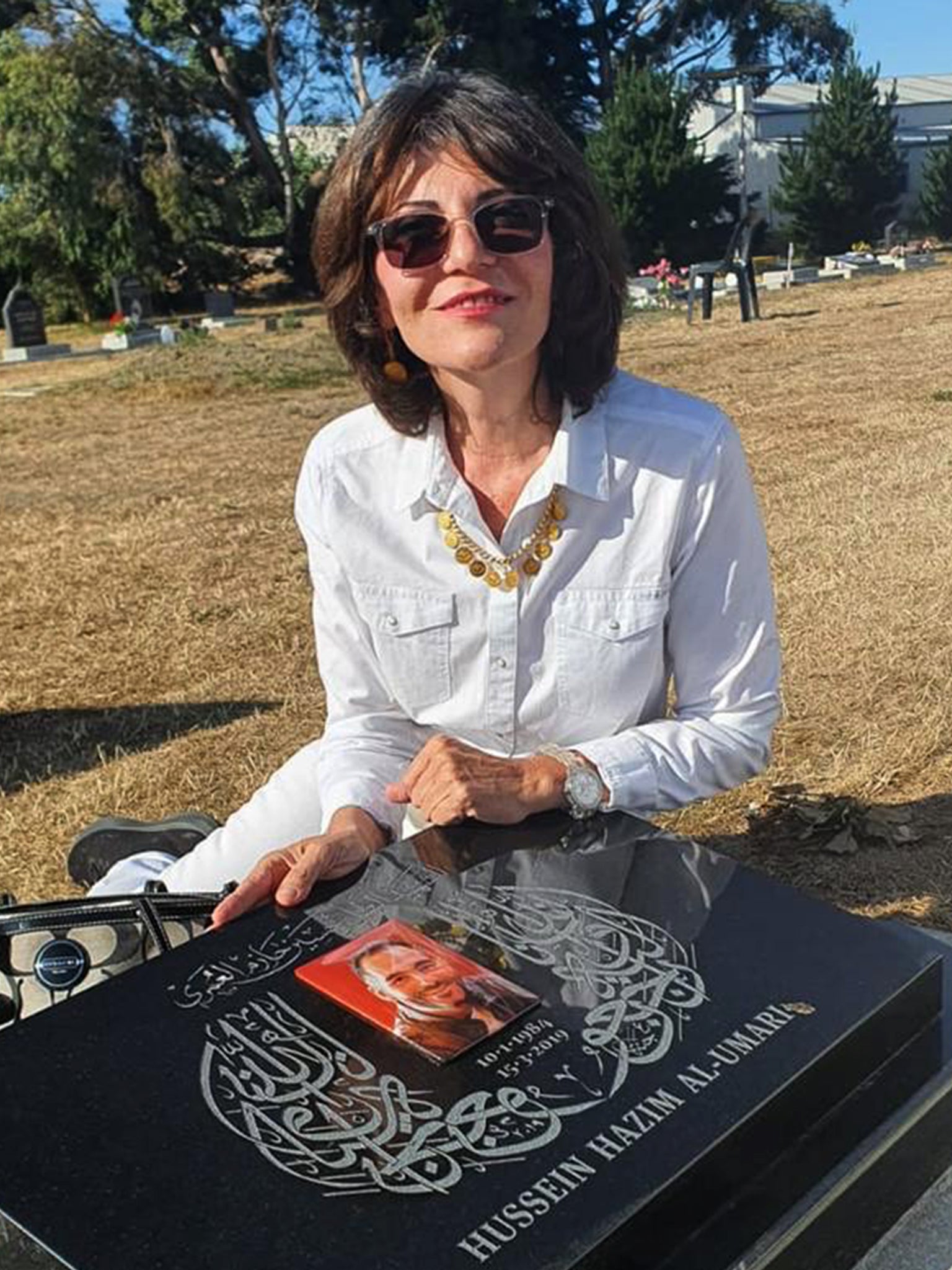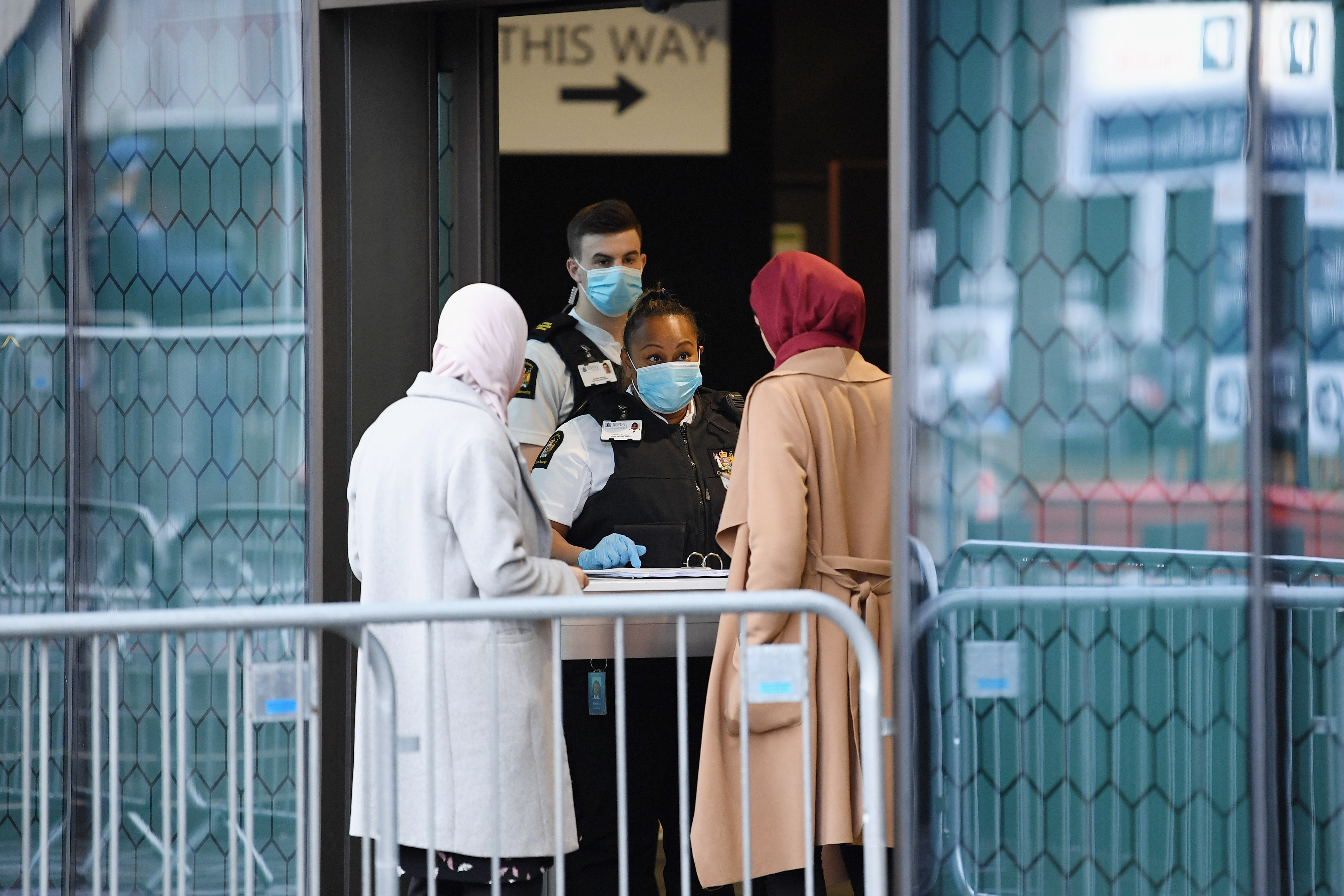‘Taking their grief with them’: Two years on from New Zealand mosque attacks, survivors rebuild their lives
15 March marks the second anniversary of the Christchurch terror attack which claimed 51 lives, and survivors and victims’ families are still searching for peace, reports Ashleigh Stewart

Two years since her son was murdered as he prayed, Janna Ezat is a different woman.
Physically, she is almost unrecognisable. She’s lost a huge amount of weight. Her face is gaunt.
Mentally, she is changed, too. But she’s getting better.
Previously reliant on anti-anxiety medication, antidepressants and sleeping pills, Ezat, who is Iraqi, says she finally feels “peace”.
Monday marks two years since the mosque attacks in the New Zealand city of Christchurch that killed 51 worshippers on 15 March, 2019. While a public memorial service was not possible last year due to the coronavirus pandemic, a national remembrance service will be held in Christchurch on Saturday.
For many survivors and victim’s families like Ezat, peace has come only recently, since terrorist Brenton Tarrant was sentenced to life in prison without parole in August 2020, and became the first person ever in New Zealand to be charged with committing a terrorist act.
For others, life has got harder as the months wear on.
Ezat’s 35-year-old son Hussein Al-Umari was gunned down by the white supremacist in Al Noor mosque. She received his body back on her birthday, 21 March, which is also Mother’s Day in the Middle East.
“It was the most expensive gift of my life, receiving his body,” she says.
In the two years that have passed, Ezat’s daughter Aya Al-Umari says “someone got a straw and sucked all the energy out” of her mother. Ezat acknowledges herself that at her lowest point, she resembled “a skeleton”. But she’s on the mend.
Ezat has become an avid Labour supporter and campaigner, after becoming inspired by Prime Minister Jacinda Ardern’s leadership in the wake of the attacks.
But she admits more work must be done to address casual racism.
Earlier this year, Ezat was shopping with Aya in a department store, speaking Arabic, when another customer suggested they “leave our country” and asked if Aya was a “born and bred New Zealander”.
“I told her. Yes, I am Kiwi. This is my home,” Ezat says.

The family were already considering leaving Christchurch, with all its lingering memories, but that was a turning point. They’re now planning a permanent move to Auckland.
“I’m excited. I mean, you can never move on. But you move forward. That’s the thing. So you take grief with you and you move forward,” Aya says.
Jordanian barber Wasseim Alsati says he has also continued to struggle in his adopted home.
Alsati and his four-year-old daughter were both shot multiple times at Al Noor. His daughter was gravely injured, unable to see or speak in the wake of the attacks, and is still brain damaged. In the last two years, Wasseim has had 11 surgeries; his daughter 16.
“It’s a good recovery but it’s not good enough,” he says.
“The brain injury that she had, it’s quite severe. She can see a little bit which is good. She started understanding a little bit but she’s still goes into a mode where she shuts down.
“She won’t talk to anybody and what’s amazed me is that she actually knows what exactly happened… she remembers how we got shot. But for a while she thought that I’m the one who actually got her injured. She was blaming me. And that was, that was a very tough year, to be honest.”
Vascular surgeon Adib Khanafer, who saved the girl’s life, was reunited with his “masterpiece” when she returned from specialist care in Auckland. He operated on five victims that day.

He finds it difficult to put into words how the shootings have affected him in the long term.
“As a surgeon, you tend to see a lot of trauma, so you tend to recover from it. But as a human, as a father, as a Muslim, I think this extremely something difficult to, to recover from. You will possibly learn how to live with it. But I don’t think I will ever forget it.”
After the attack, Alsati lost his job due to the care needed for his youngest child, but he’s since opened his own small barber shop in a mobile truck called Wass’ Barbers. He’s in the process of opening a second truck. But, despite the expansion, Alsati says he’s struggling. His injuries mean full work days are almost impossible.
“I’ll be standing cutting hair and all of a sudden my leg will go to sleep and I fall. And it’s painful.
“And my doctors are always telling me, ‘Don’t work and just keep the stick with you’, but I’m just sick of that. I want to do anything else, than just stay in pain.”
Alsati is also struggling to keep himself afloat financially. He says his benefit from New Zealand’s Accident Compensation Corporation isn’t enough, and the Victim Support donations from around the world, which amounted to $50,000 each for him and his daughter, is already well on the way to being spent.
“$100,000 for two injured in one family with all the expenses for two years - how long can that last? I have spent all my daughter’s money - I am really angry about that. I have used her money to survive, to keep the family surviving,” he says.
“I’m not telling you that before 15 March we were planning to be a millionaires but we just want to live our life normally, to buy a house, to be normal. Now we are below normal.”
Alsati also does not believe New Zealand has addressed its issues with inclusivity.
He says he was “very disappointed” by an experience earlier this year when police showed up at his barber’s truck to ask if he had affiliations with Isis. It was a result of a photo he posted on Facebook at the Hagia Sophia in Istanbul, which was last year converted into a mosque.
Alsati was waving a flag with the Islamic profession of faith, the shahada, on it. The inscription is also on the flag of Saudi Arabia, but since the 2000s it has also been adopted by extremist groups - but as white text on a black background. Wasseim was waving a red flag.
Christchurch Police declined to comment about the event.
Christchurch Mayor Lianne Dalziel acknowledges there is no quick fix for racism. But she believes the city has done a lot to serve as an example to the rest of the world.
“If you think about the actions and what sparked them, they were driven from hate, and a desire to inspire further acts of violence. And all of that was rejected, rejected as a city. As a nation, we embraced peace, love, compassion,” she says.

“The prime minister herself when she spoke at the remembrance service last year, she said that what 15 March had proved is that we weren’t immune from this virus. And you know, the irony of this year is the virus is a different virus, but we’re not immune from the virus that is that is caused by hate.
“But we are potentially able to be the place that is able to discover the cure. And it is very much that desire that really drives me into believing that we can find the antidote for hate.”
Adeeb Sami, an engineering executive originally from Iraq, believes that wholeheartedly. He was shot twice in Al Noor sheltering his son from the spray of bullets.
Physically, what remains of that day for Sami is two large scars that dissect his abdomen; one running 35 centimetres vertically, and one horizontal that measures about 10cm, from the colostomy bag. And then there’s the leftover shrapnel embedded in his hip. He still has to carry a special letter to inform airport staff that the metal is inside him, not on him.
“Every day, whenever I take a shower I will remember that day,” he says.
Much has changed in the past two years for Sami. His daughter, Hamsa, got engaged and then married, and is about to have her first child. Hisson Abdullah is set to be married in July. He says Christchurch is more home now than it ever was.
“I went a lot from through my life, you know? And I saw big events a lot. You have to be prepared to pass this. You have to get over it. Although you cannot stop thinking about, but you have to get over it.”
Subscribe to Independent Premium to bookmark this article
Want to bookmark your favourite articles and stories to read or reference later? Start your Independent Premium subscription today.



Join our commenting forum
Join thought-provoking conversations, follow other Independent readers and see their replies
Comments